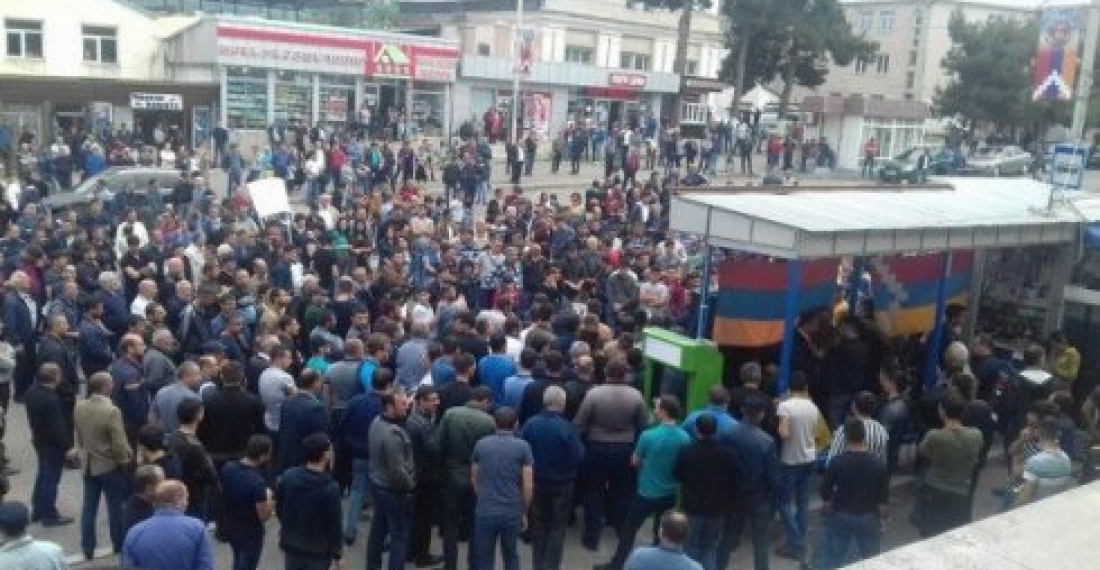Armenian media report ongoing political unrest in Stepanakert, the administrative centre of the self-declared Nagorno-Karabakh Republic (NKR). The incidents began on Friday with a fight involving up to 15 persons, including members of the territory's security service. Radio Liberty Armenian service quote the local police as saying that during the dispute the sides mutually hit each other, causing bodily injuries. The police did not specify what caused the dispute
On Saturday protestors gathered demanding that perpetrators of the incident are punished. Some of the protestors later met with Bako Sahakyan, the president of NKR, who promised a full investigation.
The Armenian website news.am reports from Stepanakert that the protests continued on Sunday.The website said that protestors were calling for the resignation of officials responsabile for law enforcement, according to Vladimir Dolukhanyan, a member of the National Revival Party board. The same source said that around 500 people were participating in the protest.
source: commonspace.eu with agencies
photo: Protestors in Stepanakert on Sunday 4 June 2018 called for the resignation of officials responsible for law enforcement (picture courtesy of news.am)







